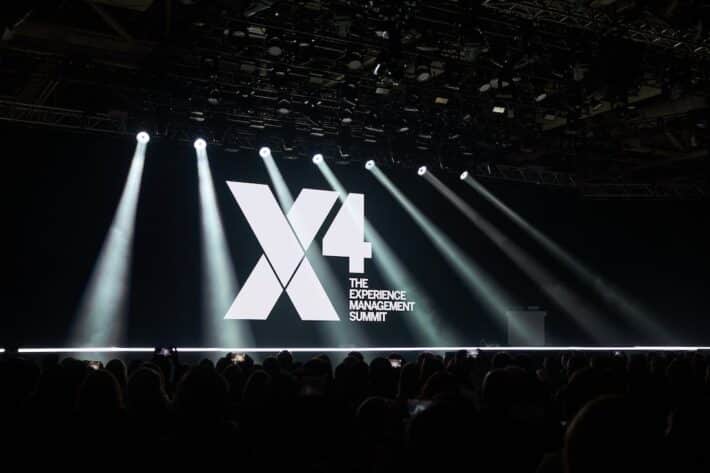The bots are coming… to take over a retail customer service department near you. Thankfully, in reality, things aren’t nearly as dramatic. However, AI bots are becoming more and more common place in the world of retail and beyond. Bots often present themselves as familiar chat widgets on websites or can be found inside messaging apps like WhatsApp and Facebook Messenger. Put simply, they are pieces of software that are designed to mimic human conversation.
AI bots often provide transactional information, such as order details and special offers. In some cases, the bot will analyse the text in your query in order to either answer it directly or direct you to a relevant web page or person who can handle it.
So, how are millennials, the most coveted demographic for many retailers, taking to bots? Can these AI bots be deemed a success? And, crucially, will they be replacing human customer service agents in the near future?
https://twitter.com/bernietb/status/1009306678922055680
Millennials View of AI Customer Service Bots
Although approximately 25% of general consumers interact with an AI bot every day, according to MobileMarketer, for millennials this figure is 40%. A report by RetailDrive notes that “55% of millennials claim to have had a positive experience with chat bots”. This sentiment is echoed by research from Relate, as reported by AdWeek, that of the 500 millennials polled, aged 18-34, 58% had mostly reported having “a positive or very positive experience”. Interestingly, of the 42% that hadn’t interacted with a chat bot, 53% of millennials were interested in doing so. This demonstrates the openness of this demographic, and how they are keen to experience AI chat bots.
These results are hardly surprising. There are a number of reasons why millennials are intrigued by chat bots:
A Love of Social Platforms
AI chat bots are embedded in the same online social environment that millennials spend an increasing amount of time on. AI chat bots often appear in Facebook messenger which, as Comscore highlights, is an app that millennials typically spend 26 hours per month on. In short, the chat bot almost always appears in a setting that millennials are already familiar with.
Instant gratification
According to Imran Tariq, founder of Webmetrix Group, “millennials are accustomed to giving and receiving immediate feedback” and AI chat bots “can provide this immediate, human like response that millennials crave”
Engage with Emerging Technology
Millennials are the demographic most likely to positively engage with emerging technologies. This goes a long way in explaining the initial, and potentially the ongoing, success of AI chat bots. The bots represent a new, dynamic way of communicating with brands and businesses, including retailers.
Evidence suggests that millennials have a new-found infatuation with AI bots that will strengthen and evolve in the future, however, things are far from that clear cut.

Millennials Still Very Much Love Human Interaction
The simple fact remains that, as BotAnalytics states, “millennials prefer talking to humans when it comes to complex tasks, reserving chatbots for simpler things like checking an order status or booking an appointment”. There is little ambiguity surrounding this, as millennials have spelled this out themselves quite clearly.
This is supported by our recent research carried out in collaboration with OnePulse, which found that out of 1,000 millennials surveyed “76% prefer human assistance online over a chatbot”. This is quite a striking statistic that challenges the assumptions that millennials are enamoured with tech and therefore, must prefer bots for all interactions.
Relate’s research found that among millennials, “86% want brands to use bots specifically for promoting deals, products and services”. RetailDrives research echoes this, finding that “52% of millennials polled reported that they would be interested in using a chatbot for taking action on local services such as booking an appointment or signing up for a class”.
This is not surprising because, in their current state, chat bots fail miserably with even basic conversations, but excel at providing contextual data (order updates, deals), which is basically transactional information provided in a conversation format, thus under the guise of having a real conversation.
At their current state, AI chat bots have none of the spontaneity, fluidity and freedom that characterises a real one-to-one human interaction. It therefore comes as no shock that, according to MediaPost, “Facebook Messenger chatbots reached a 70% failure rate responding to queries”. It’s evident that millennials were interacting with them like they would they would other human beings and quickly found the AI bots woefully inadequate compared to their human counterparts.
This idea is supported by research from Retale. In their study, 28% of the millennial respondents who had interacted with chat bots “wished the conversations were more natural”; 55% longed for “more accuracy” and 12% “wished that chat bots could get human customer service representatives involved when appropriate”. Evidence such as this is not exactly a ringing endorsement for AI chat bot’s supremacy over old fashioned human customer service reps.
That depends on your position of how good AI can get – I have no problem seeing it outpace humans at some point. At the moment I'd side with an AI first approach to weed out the obvious stuff, and then dig deeper with more human interaction.
— salmXnmXXse 🫎🏳️⚧️🫎🏳️⚧️🫎 (@salmonmoose) June 14, 2018
So, what conclusions can we draw from this? Currently, AI chat bots are successful, but in the narrow scope of delivering contextual information and providing straight answers to rudimentary requests. So, if millennials are using the AI chat bots for these narrow requests then they will be pleased and satisfied.
However, for anything else, AI chat bots are typically pretty useless. With this in mind, it’s unsurprising that 76 percent of millennials still prefer human interaction over bots when online shopping.
But why are bots still finding mimicking human conversation so hard? Well, because it’s a tough problem to solve from a technical perspective. As put by influential linguist and MIT professor Noam Chomsky in the MIT Review, “AI researchers would struggle to get machines to understand, given that the mechanics of language in humans were so poorly understood”.
https://twitter.com/IncentricDigi/status/1009862826154917894
Yes, Artificial Intelligence will improve over time with more input, better algorithms and superior processing and thus get better at natural language. But, barring some exponential improvement over the next decade or so, human customer service reps can breathe a sigh of relief as the bots aren’t going to be replacing their jobs any time soon.
When it comes to retail customer experience, millennials have very unique tastes, preferences and goals. Understanding millennials and taking action to align your retail business with their habits and preferences will likely be the difference between success or failure in the coming decade. Why? Because, it’s estimated that by 2020, millennials will be making up approximately 50% of the workforce, and thus be the ones with the most disposable income and influence.

Fortunately, you can find out precisely what millennials want from their retail experiences and get ahead of the curve by catching up on our latest webinar on Retail Customer Experience, where we collaborated with OnePulse for advanced analysis of over 10,000 millennials to gain emotional insights into what consumers really want want, and how your business can use Emotics to transform your customer experience for retail’s most coveted demographic.
Watch the recording here!








